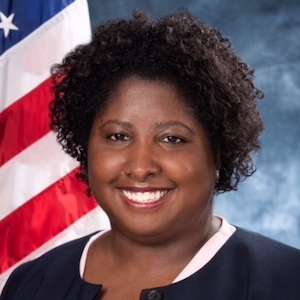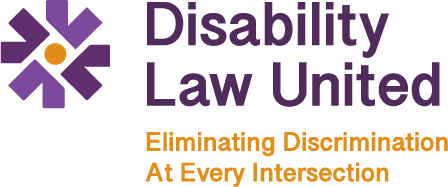
We are honored and excited to welcome Dr. Rabia Belt to Disability Law United’s Board of Directors. Rabia is an advocate and leading scholar on the history of disability and citizenship.
Rabia is an Associate Professor at Stanford Law School. She teaches courses on Disability Law and the History of Civil Rights Law, among other topics. Her scholarship focuses on the historical (and contemporary) access to democracy for people with disabilities. She was named a Kathryn T. Preyer Scholar in 2015 for her paper “Ballots for Bullets? The Disenfranchisement of Civil War Veterans” and her book titled Disabling Democracy in America: Citizenship, Suffrage, and the Law, 1819-1920 is forthcoming from Cambridge University Press. Rabia has presented her scholarship in workshops, classes, symposia, and conferences, from the White House to Germany.
In tandem with her academic work, Rabia advocates for individuals with disabilities. In 2016, President Obama appointed her to the National Council on Disability, where she advised Congress among other federal agencies on best practices for equal access. She comes to Disability Law United with past board experience, having served on the Disability Rights Bar Association Board of Directors from 2015 to 2020. Her other professional affiliations include the American Society for Legal History, where she is on the Board of Directors; the Jacobus tenBroek Disability Law Symposium, where she sits on the Planning Committee; and the Society for Disability Studies.
As a law student, Rabia worked as a summer associate at Preston, Gates & Ellis, LLP, a parliamentary intern with the South African Human Rights Commission, and a research intern at the Office of the Monitor for Pigford v. Glickman & Brewington v. Glickman. She received her JD from the University of Michigan Law School in 2009, and her PhD in American Studies from the University of Michigan in 2015.
Rabia brings a wealth of perspective and expertise to Disability Law United, and we are so looking forward to working with her. We invite you to join us in welcoming her to the board.
